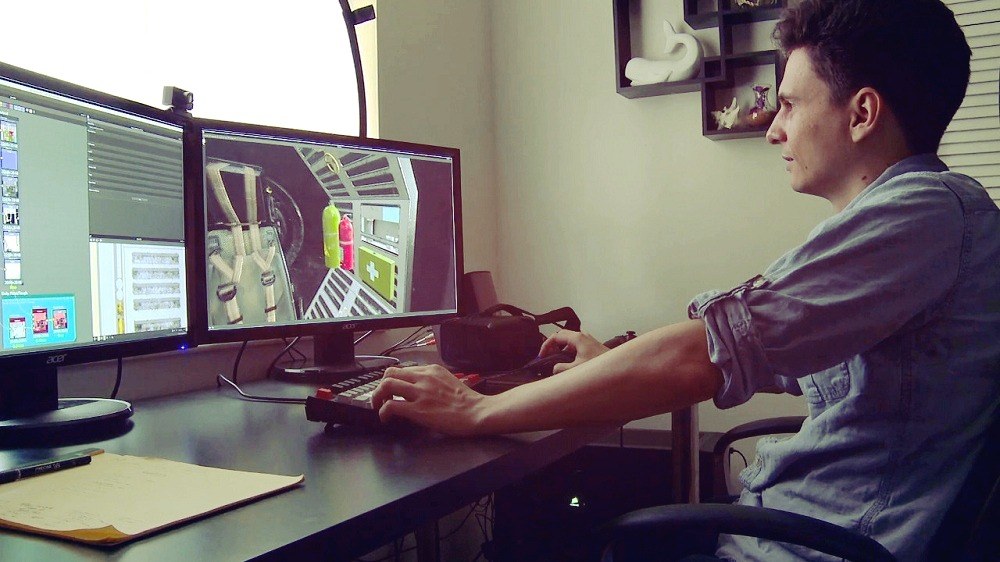Games are no simple thing. Creating them is even less so. The development process requires dedication, imagination, countless hours of effort and a lot of actual knowledge about coding. The question of how to become a game developer is a complex one, but there is an easy way to break it down intelligently so you can start moving towards your dream.
Studying the basics of game development, especially coding, can be very difficult. But it can also be really fun. As you learn more about this field, you’ll see that game development includes more than just traditional video games. It’s about making all kinds of interactive experiences. This includes the fast-changing world of online casino games. Here, you not only have to make fun and interesting games. You also have to use probability and randomness in games like slots, blackjack, or roulette. This makes sure the games are fair.
This shift toward developing online casino games represents a fascinating intersection of technology, creativity, and strict regulatory standards. For those interested in exploring this area further, especially in understanding how legal frameworks shape these online spaces, there is a guide on legal online casinos in Canada that offers valuable insights into the industry. This resource can provide a clearer understanding of the regulatory environment and its impact on game development. As a developer making these games, you have an important job. You not only build games but also make safe and responsible gaming places. This shows how diverse and changing the game industry is. You can always keep learning and rethinking what a game developer does.
Step #1: Learn the basics
So, you must wonder – what does a game developer do? Well, they code – a lot. Coding is in the essence of all game development. As a coder, you will be in charge of bringing the entire game to life, making interaction with an imagined world possible, and sifting through requests to better the existing products by spotting pieces of flawed code.
Now, the big question.
What qualifications do you need to be a game developer? Well, this is usually an expansive set of criteria, but the good news is they can all be taught, so buckle down and let’s get going.
It can be fun. It can be infuriating. You will need to pursue a degree in computer science or computer engineering with a solid understanding of maths. Before you balk at the idea, remind yourself that understanding maths is just a matter of hard work and training.
Here are several skills that you will need to demonstrate during your training, internship, and most importantly, on your job as a game developer:
- Grasp of programming languages (C, C++, Perl, Assembly, Lua)
- Critical thinking and problem solving
- Quality control and quick decision-making
- Systems evaluation
Each skill takes time to cultivate and reaching development maturity is also a process that requires years. The good news is that you will be continuously improving and growing as an individual and professional.
Step #2: Develop Maths Skills
You can certainly start your path to becoming a game developer with a limited understanding of maths. However, as your ambition and talent grow, you will need to augment your understanding of the subject. You will need to understand a number of important subjects, including:
- Trigonometry
- Physics
- Calculus
- Linear algebra
- Algorithms
The reason you will need maths is that it will offer you quick solutions and guidance to complicated problems.
If you fear you are lacking in any of these skills, you can always start taking courses, especially in college.
Step #3: Build a portfolio: program for fun but seriously
Many people will tell you that the answer to how to become a game developer is by developing. This is not a wiseacre tautology – it’s the truth.
To stand a chance to enter the industry, you will have to have a portfolio that usually features several games that can be played well through to the end.
You will need to be very thorough and forthcoming about your work. Developers will want to see your source code and they will want to make sure that you have credited any contributors or even third-parties from whose work you have borrowed.
Be open and frank as much as you are assiduous and results will follow.
Step #4: Find an entry-level job
Becoming a game developer in a competitive industry requires dedication, but you already know this much. It’s time to help you hunt for your first entry-level job. You will need to have successfully worked to amass an impressive range of qualifications:
- Degrees and showcase projects
- Original work and finished games
- Internships at noteworthy studios
- The hard skill to back any application
Your coding should be on point come what may, but you can keep piling on qualifications, such as solid grasp of 3D graphics, physics and something that is an especially sought-after skill today – artificial intelligence.
To better your chances of landing a job, you will need to follow job boards, engage with industry figures and continue to better yourself.
A final thought on pursuing your passion as a game developer
By now you certainly know how to become a game developer. This doesn’t make the process any less demanding, though – and yet all the skills you will pick up in your training are transferrable to other professions as well.
Don’t back down just because the workload seems significant. Channel your passion for creating and bringing worlds to life and you will certainly see yourself working towards an ambitious and yet attainable goal.


